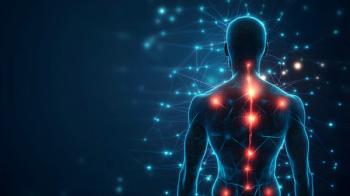
Mayday! Mayday! We Feel the Pain
Pain is escalating…
PSYCHIATRIC VIEWS ON THE DAILY NEWS
Pain is one of those symptoms that is common across many medical specialties. It is also often difficult to diagnose the cause and to treat it successfully. It can be physical or psychological pain, or both, as in trauma, as described by the psychiatrist Bessel Van der Kolk, MD, in his book, The Body Keeps the Score: Brain, Mind, and Body in the Healing of Trauma.1
Distressingly, pain is escalating. About 10 days ago, my column focused on our loneliness epidemic in the United States, and pain is a common spin-off of that loneliness. Psychological pain is not only an essential component of the “deaths of despair” in the less educated and those of middle-age, but now also in the isolated elderly in Western societies.2 Around the world, physical pain is often associated with economic recessions.3 In the United States, there is a growing link of income inequity and physical pain, often resulting in opiate addiction and fentanyl deaths.4 Such psychological pain may be yet another of what I deem social psychopathologies.
In 1992, presidential candidate Bill Clinton famously responded to a heckler with: “I feel your pain.” That statement went on to be a popular, if at times suspicious, expression of sympathy. There is no evidence that it helps the pain go away. For that, treatment is necessary.
Those most vulnerable to recalcitrant chronic pain are those who are most likely not to have adequate health insurance. Even for those who have adequate funding, treatment is challenging. Promising treatments include virtual reality, mindfulness, cannabinoids, and the psychedelics.
However, the best way to reduce chronic pain collectively is to prevent it. As it becomes clearer that various undue social stressors contribute to the problem upstream, we must address the deeper social psychological wounds in our economy and society.5
Dr Moffic is an award-winning psychiatrist who has specialized in the cultural and ethical aspects of psychiatry. A prolific writer and speaker, he received the one-time designation of Hero of Public Psychiatry from the Assembly of the American Psychiatric Association in 2002. He is an advocate for mental health issues related to climate instability, burnout, Islamophobia, and anti-Semitism for a better world. He serves on the Editorial Board of Psychiatric Times.
References
1. van der Kolk B. The Body Keeps the Score: Brain, Mind, and Body in the Healing of Trauma. Penguin Publishing Group; 2015.
2. Powell VD, Kumar N, Galecki AT, et al.
3. Macchia L. Research: the link between recessions and physical pain. Harvard Business Review. March 1, 2022. Accessed May 11, 2023.
4. Chou EY, Palmer BL, Galinsky AD. The link between income inequality and physical pain. Harvard Business Review. March 21, 2016. Accessed May 11, 2023.
5. Kristof N. Why Americans feel more pain. New York Times. May 3, 2023. Accessed May 11, 2023.
Newsletter
Receive trusted psychiatric news, expert analysis, and clinical insights — subscribe today to support your practice and your patients.






